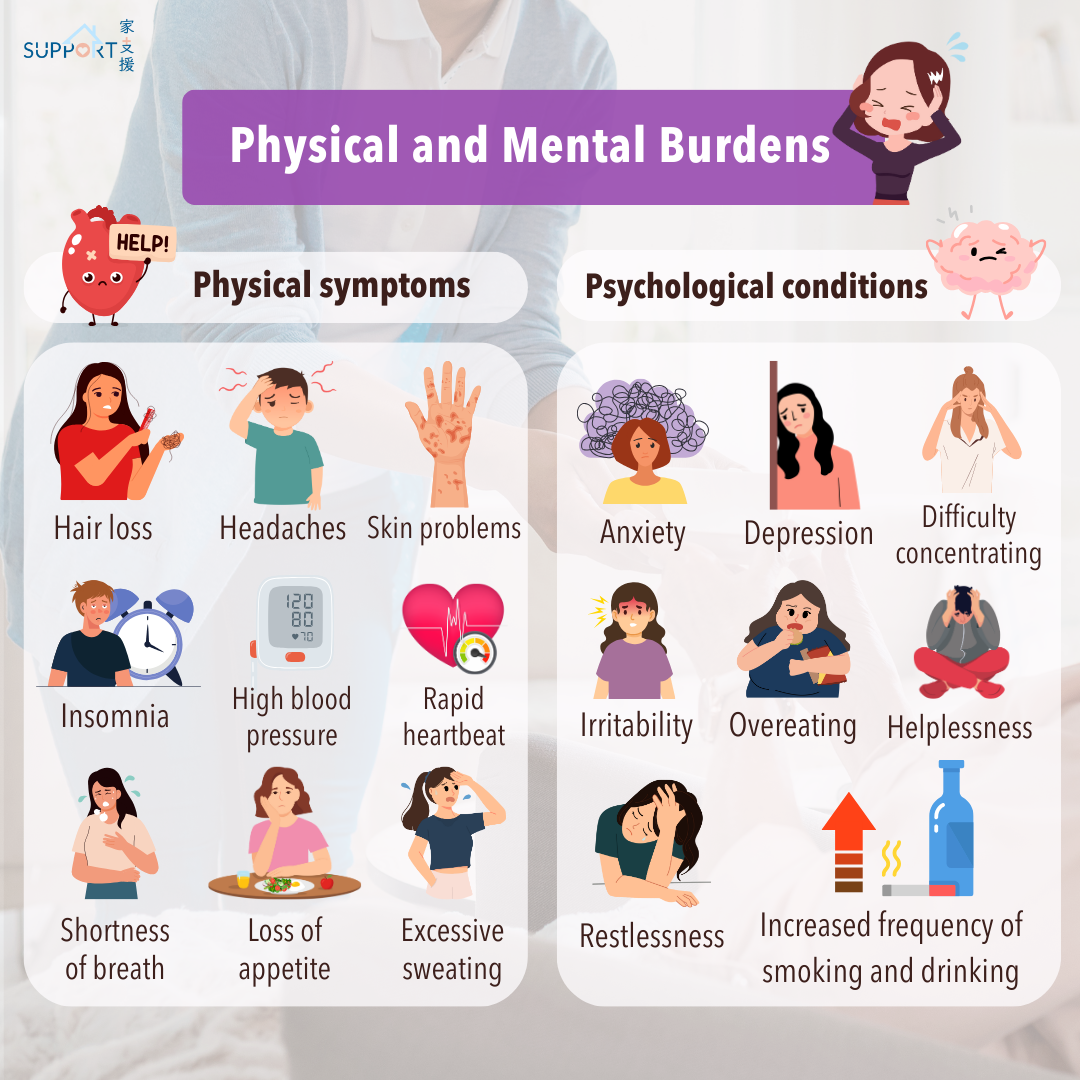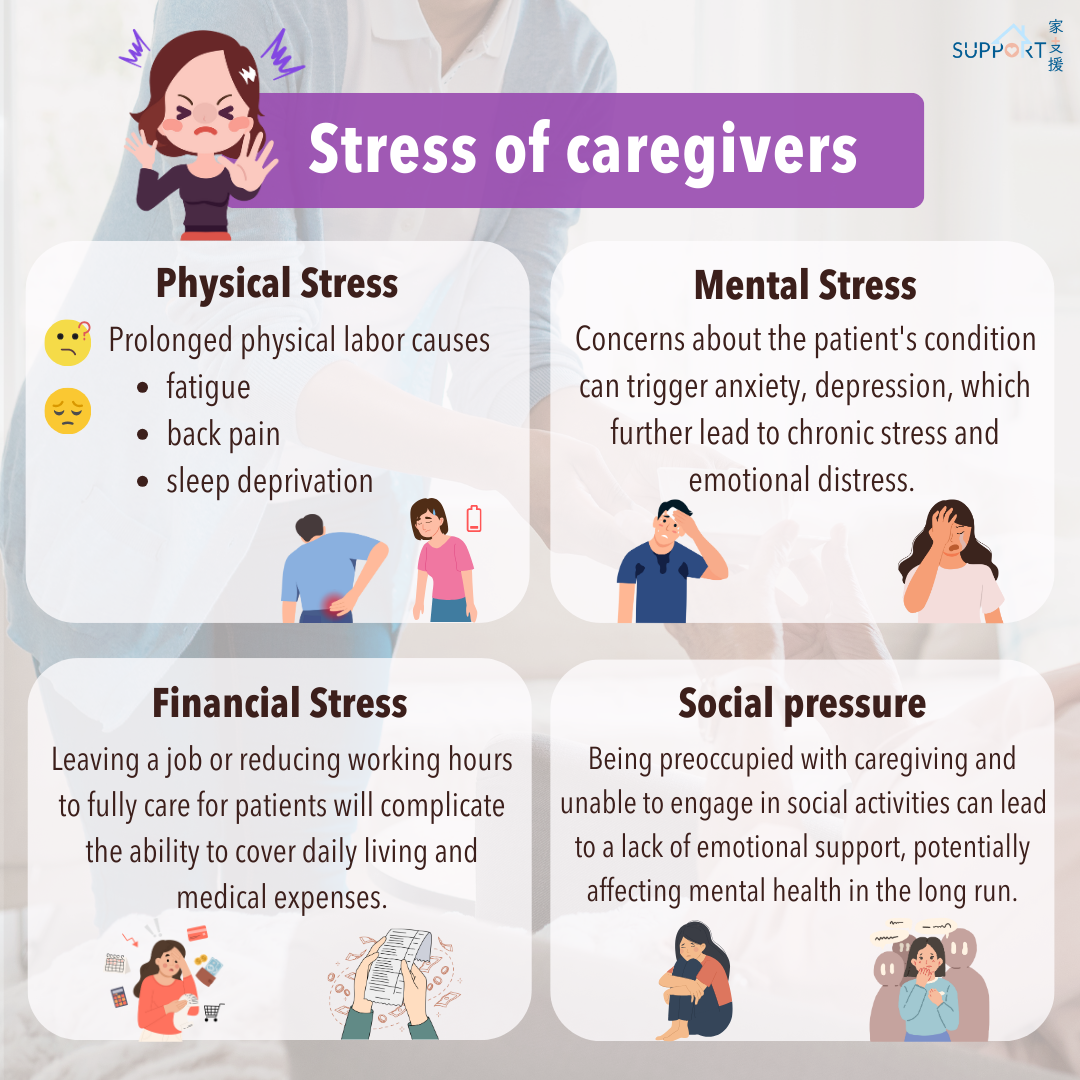Caregivers' selfless dedication may lead them to overlook their own needs, resulting in heavy physical and mental burdens. If caregivers exhibit the following symptoms, it may indicate that they are experiencing excessive physical and mental strain:

- Physical symptoms: hair loss, headaches, skin problems (such as eczema, herpes, psoriasis), insomnia, shoulder, neck and back pain, muscle tension, high blood pressure, rapid heartbeat, shortness of breath, gastrointestinal discomfort, weak immune system, loss of appetite, excessive sweating, etc.
- Psychological conditions: anxiety, tension, depression, negative attitude, fatigue, helplessness, difficulty concentrating, restlessness, irritability, overeating, increased frequency of smoking and drinking, social isolation, etc.
Caregiving is a long journey. To care for others effectively, it is essential to prioritize your own physical and mental well-being. Caregivers should regularly allow themselves space to rest, manage stress and emotions, and improve the effectiveness of their care.
The pressure and responsibilities faced by caregivers should not be underestimated, so it is important for everyone to understand and support them. Let us work together to provide them with more care and help! 💪🏻💕



